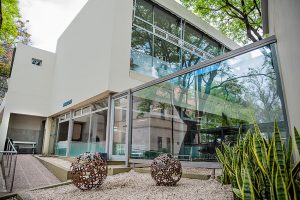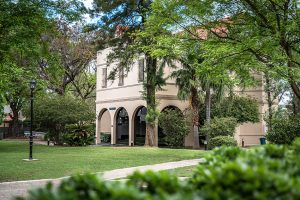Sanatorio Morra

Sanatorio Morra, with its almost 100 years of life, is synonymous with Neurosciences in Argentina. Its facilities, located in the city of Córdoba (Urca and Downtown), and in the Sierras of Córdoba, are specially designed to address mental health and substance use disorders in all forms and complexity levels.
Teamwork and human commitment characterize the institution. Health professionals such as psychiatrists, psychologists, clinicians, neurologists, physiatrists, cardiologists, nutritionists, physiotherapists, occupational therapists, and social workers provide outstanding service. Our full continuum of services includes:
- Hospitalization in mental health and addictions (with VIP service)
- Comprehensive care program for substance use disorders
- Therapeutic community (addictions)
- Individual, family, and group outpatient treatment.
- Intermediate Devices: Halfway homes, assisted residences, day hospital.
- Home hospitalization and provincial mental health care network
- Neurorehabilitation
The Comprehensive Care Program for Substance Use Disorders incorporates three levels:
- Level I – Comprehensive Intensive Outpatient Care: Includes Individual Psychotherapy, Psychiatric Consultation, Drug Dosage, Family Psychotherapy, Group Psychotherapy, and Family Group Workshop. Currently provided in all the modalities in-person, hybrid, and online.
- Level II – Therapeutic Community: Aiming to develop interpersonal relationship tools, promoting the recovery and social reintegration of people affected by substance use.
- Level III – VIP Hospitalization: Aiming to detoxification of the patient.
These treatment modalities make it possible to address substance use problems tailored to each patient, in all stages, from the suspension of consumption to functional recovery and gradual return to their usual activities.
Sanatorio Morra’s spirit combines a multidisciplinary professional approach with modern neurosciences and psychiatry, applying diagnostic methods based on neuroimaging and laboratory science with socio-therapeutic strategies, psychoeducation, understanding, and family involvement. Finally, by incorporating new techniques of social reintegration, this treatment constitutes a unique and comprehensive approach to treating addictions. Furthermore, these therapeutic instruments decrease the risk of relapse, creating a motivation system in the patient to work for their recovery.



Sorry, no records were found. Please adjust your search criteria and try again.
Sorry, unable to load the Maps API.